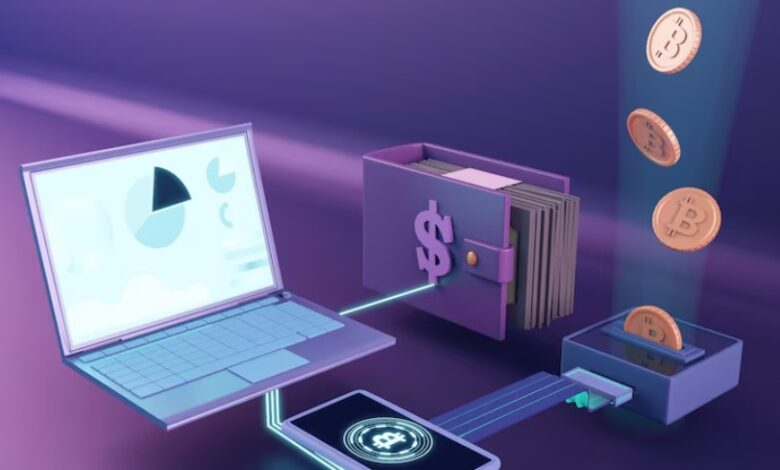Digital Wallets in Gaming: Driving Growth in Virtual Economies

Digital wallets have become a cornerstone of modern financial transactions, and their impact is extending far beyond traditional commerce. In the gaming industry, digital wallets are driving significant growth in virtual economies, transforming how players interact with virtual assets and how developers monetize their creations. This shift is not only changing the landscape for gamers but is also attracting the attention of financial institutions, including futures prop firms, which are beginning to explore the potential of virtual economies.
Revolutionizing In-Game Transactions
Digital wallets are revolutionizing in-game transactions by simplifying the process of buying and selling virtual goods. Traditionally, players had to enter their payment details repeatedly for each transaction, which could be cumbersome and inefficient. Digital wallets streamline this experience by securely storing payment information and enabling quick, one-click purchases.
This convenience has a direct impact on the gaming experience. For free-to-play games, where in-game purchases are a primary revenue stream, digital wallets facilitate smoother transactions, encouraging players to spend more on virtual items, upgrades, and other enhancements. As a result, developers see increased revenue, which they can reinvest into creating more engaging content and features for players.
Expanding Virtual Economies
Digital wallets are also playing a crucial role in expanding virtual economies within games. By enabling seamless transactions, they support a more interconnected and dynamic virtual marketplace. Players can now trade virtual items and currencies across different games and platforms, creating a broader and more fluid virtual economy.
This interconnectedness allows gamers to leverage their assets in new ways. For example, items earned or purchased in one game can be traded for currency or other assets in another game. This cross-platform integration enhances the value of virtual assets and provides players with more opportunities to engage with and benefit from their gaming activities.
Blockchain Integration and Security
The integration of digital wallets with blockchain technology is further driving growth in virtual economies. Blockchain offers a decentralized and transparent ledger for transactions, which enhances the security and authenticity of virtual assets. By using blockchain, players can verify the provenance and ownership of rare or valuable in-game items, reducing the risk of fraud and ensuring that their assets are genuine.
For developers, blockchain technology provides a way to create unique, verifiable digital assets that can be traded or sold within the virtual economy. This added layer of security and transparency helps build trust among players and creates a more robust and reliable virtual marketplace.
The Interest of Futures Prop Firms
The rise of digital wallets and the growth of virtual economies are capturing the interest of various financial sectors, including futures prop firm. Traditionally focused on trading financial contracts for commodities, currencies, and stocks, these firms are now exploring the potential of virtual assets as investment opportunities.
Futures prop firms are beginning to investigate how virtual currencies and in-game assets can be integrated into their trading strategies. This could involve developing futures contracts based on the value of virtual assets or speculating on the future growth of virtual economies. By incorporating virtual assets into their portfolios, these firms are bridging the gap between traditional finance and the expanding world of gaming.
Empowering Gamers and Developers
Digital wallets empower both gamers and developers by enhancing the financial aspects of virtual economies. For gamers, digital wallets provide a secure and convenient way to manage in-game purchases and virtual assets. The ability to easily buy, sell, and trade items enhances their gaming experience and opens up new opportunities for income generation.
For developers, digital wallets offer valuable insights into player spending patterns and behaviors. This data can inform the development of new features and content, helping to attract and retain players. Additionally, the ability to monetize virtual assets and integrate with blockchain technology provides developers with new revenue streams and ways to engage with their audience.
The Future of Virtual Economies
As digital wallets continue to evolve, their impact on virtual economies will likely grow. The combination of seamless transactions, cross-platform integration, and blockchain security is driving significant growth in the gaming industry. Financial sectors like futures prop firms are also beginning to explore the potential of virtual assets, indicating that the lines between gaming and finance are becoming increasingly blurred.
The future of virtual economies is bright, with digital wallets at the forefront of this transformation. As technology advances and virtual worlds continue to expand, digital wallets will play a crucial role in shaping the future of gaming and financial interactions. For gamers, developers, and financial institutions alike, the rise of digital wallets represents an exciting opportunity to explore new possibilities and drive growth in this dynamic and evolving landscape.





